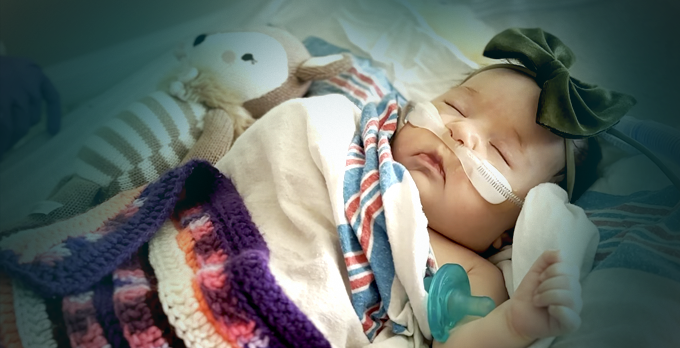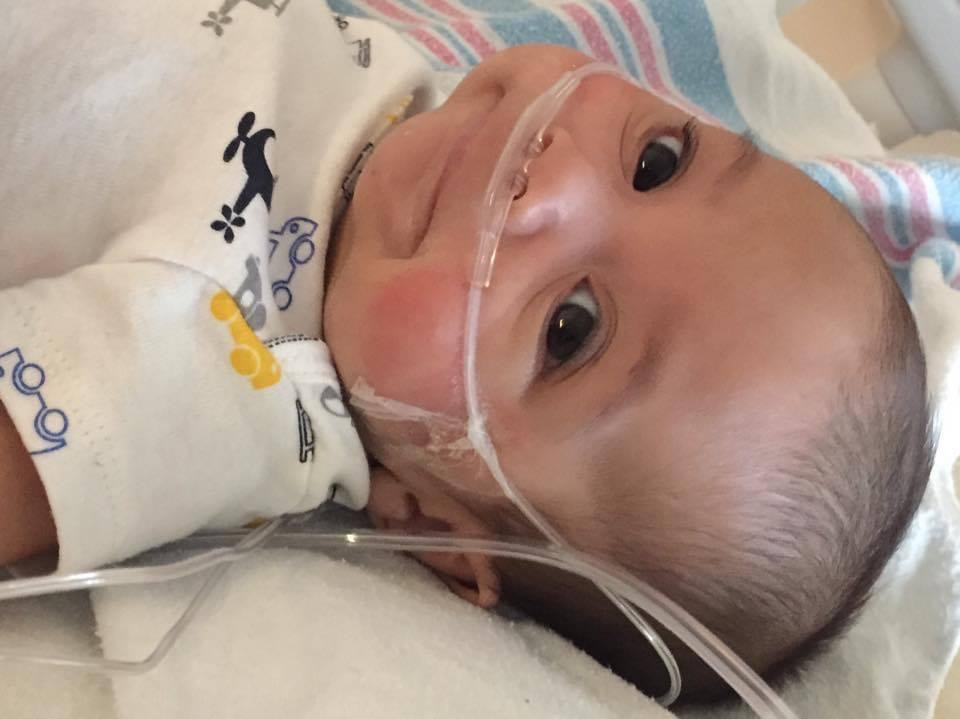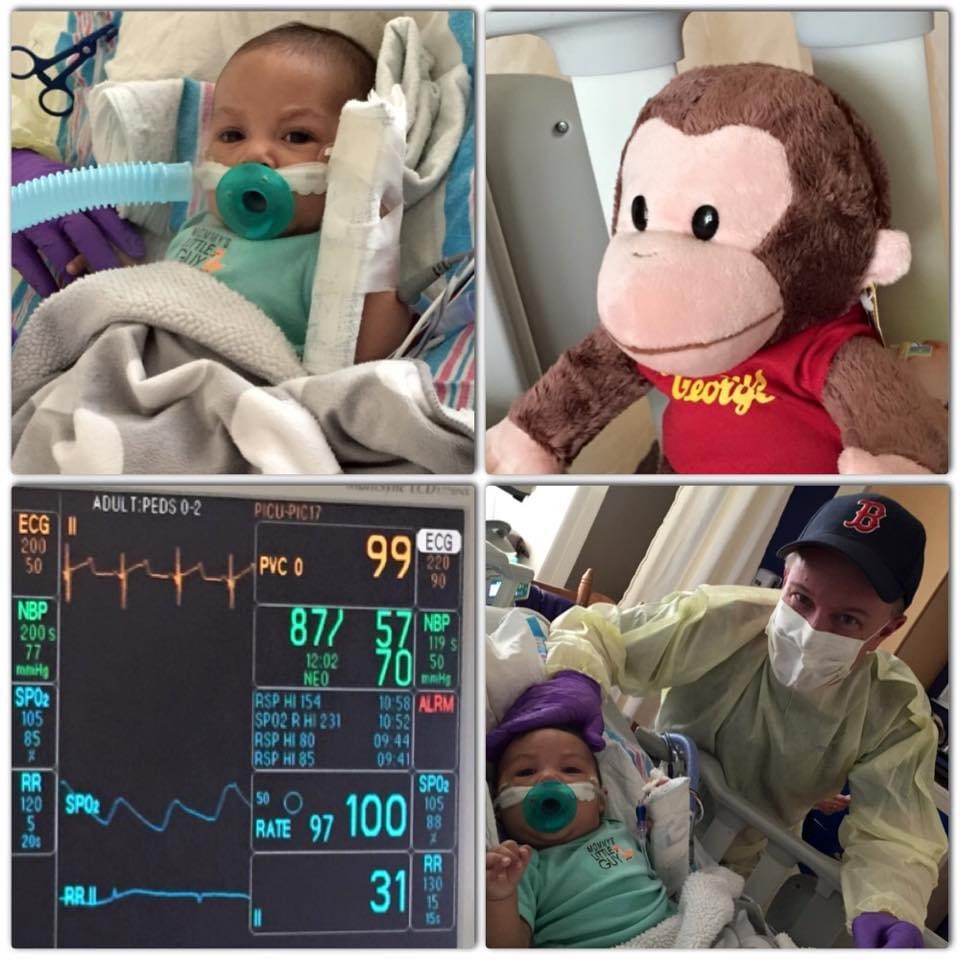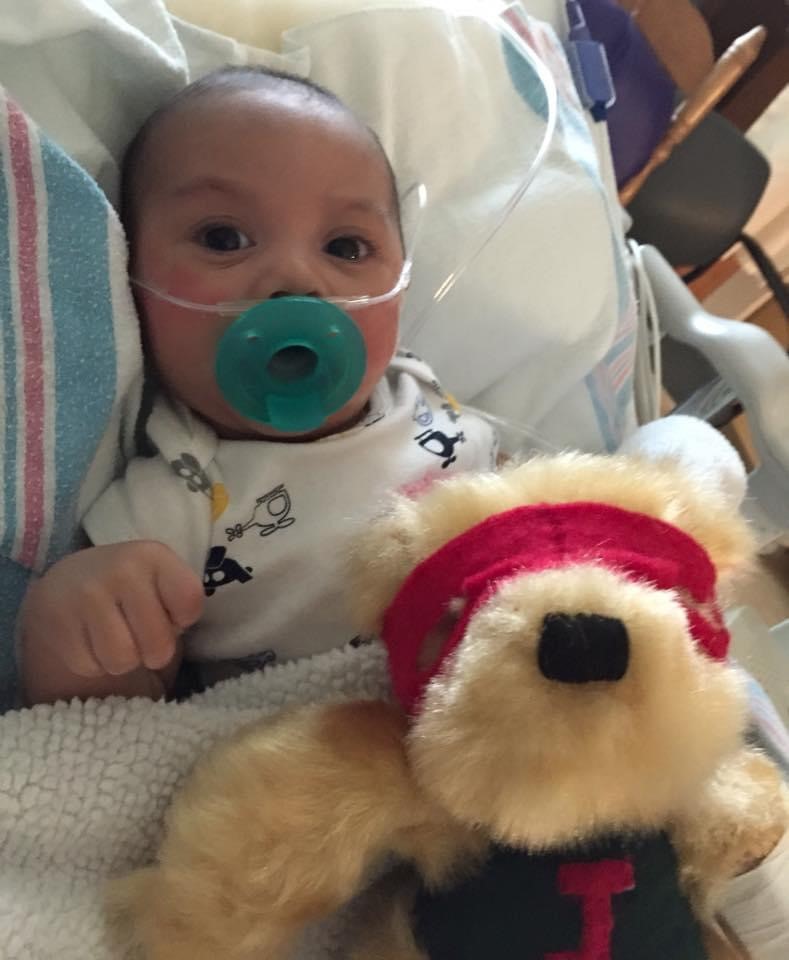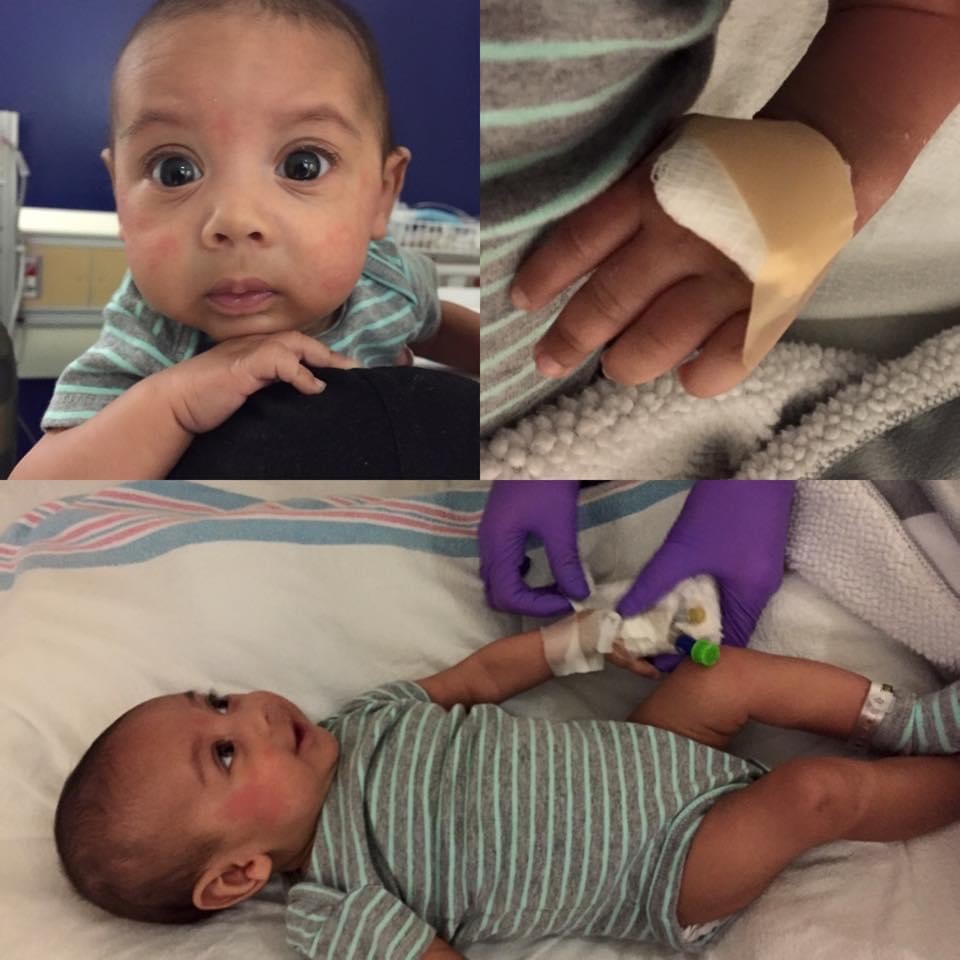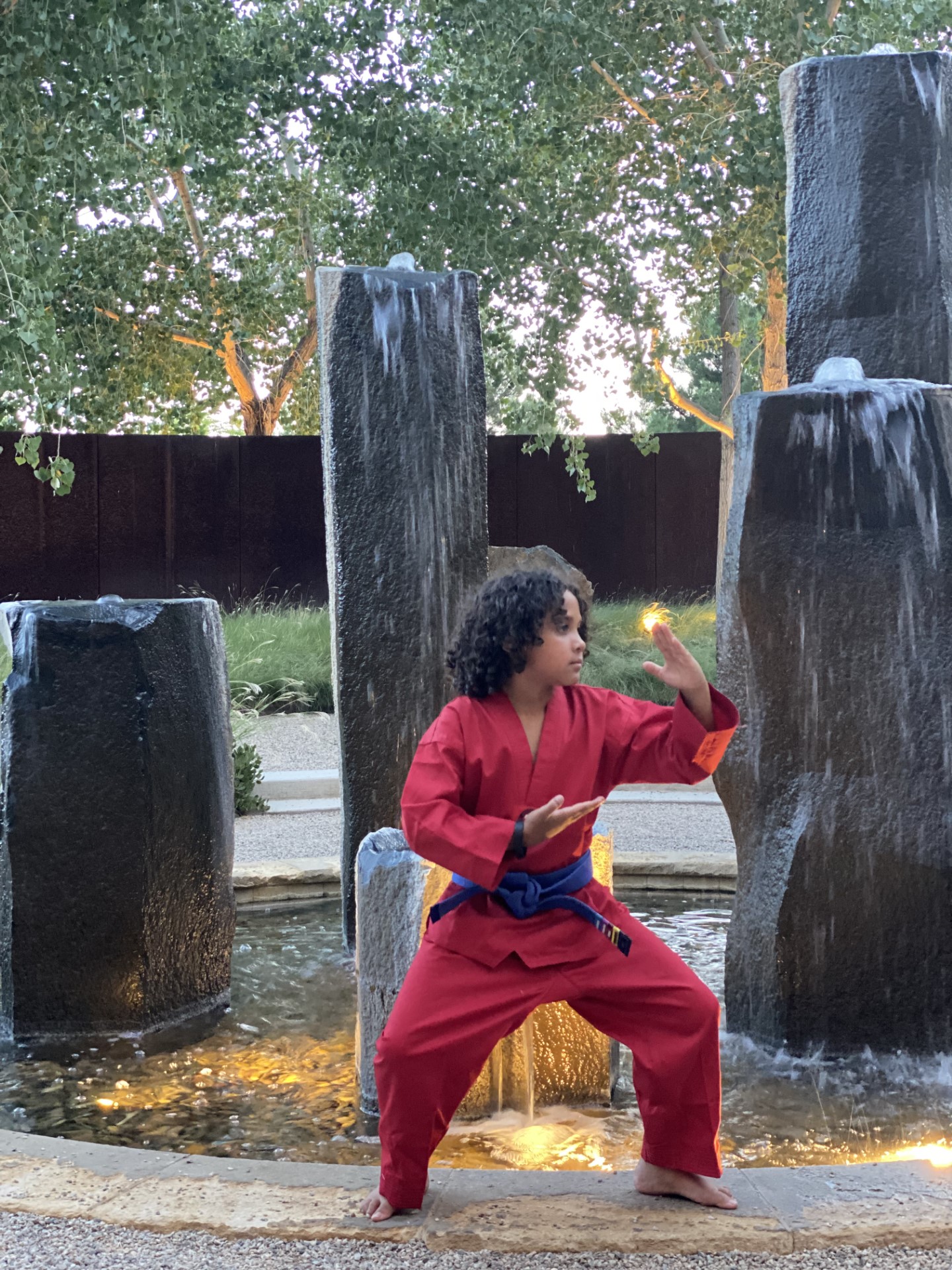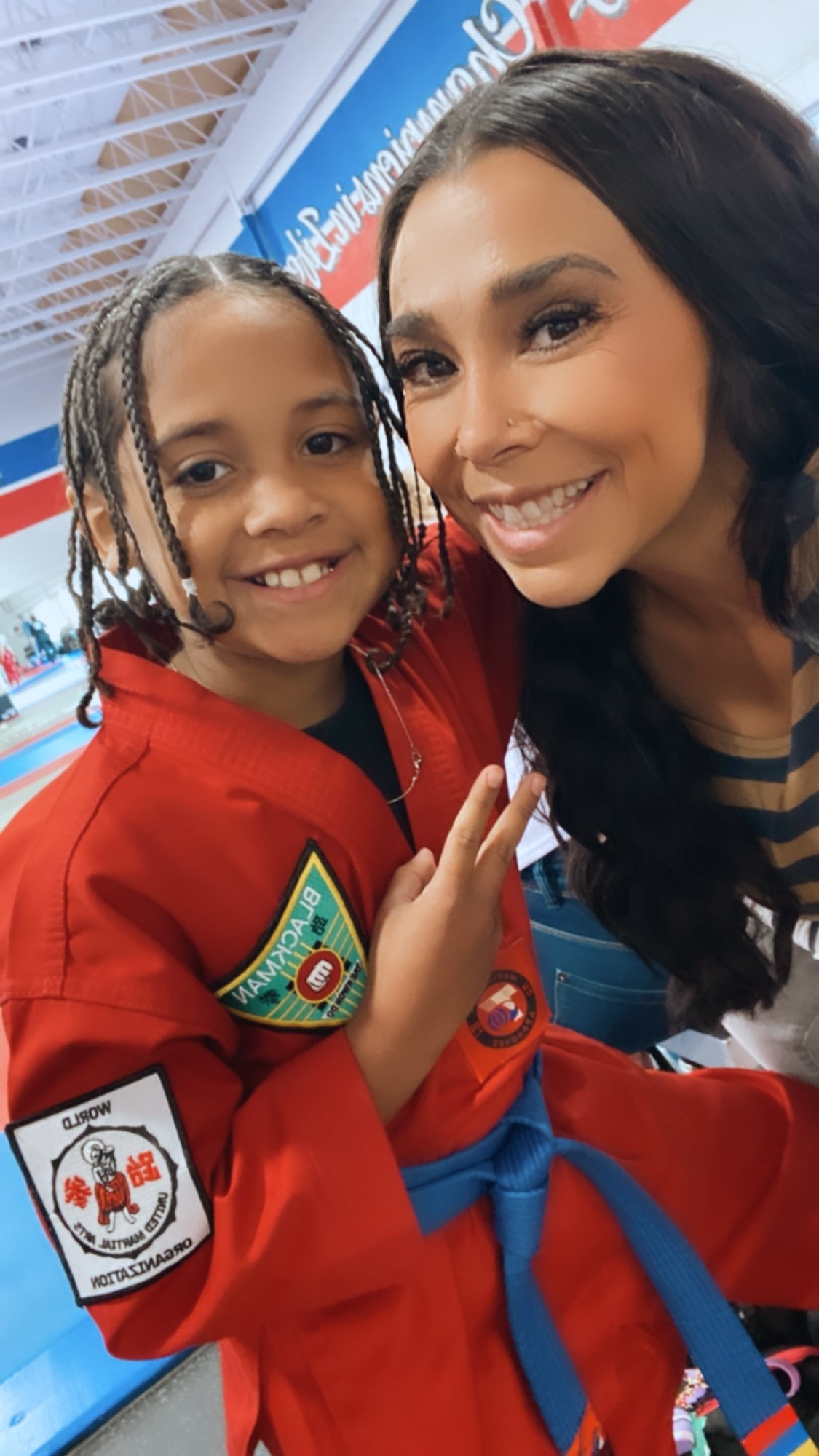Lisa Quiñones, RN, MSN, CPN had been nurse for 17 years when her two-month-old son contracted respiratory syncytial virus, better known as RSV.
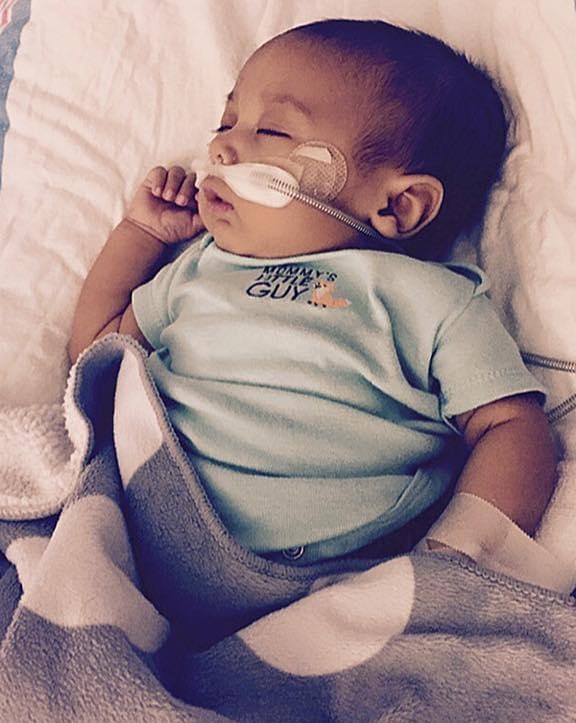
“I thought I knew the signs to look for,” said Quiñones, the Unit Director for The University of New Mexico’s Children’s Hospital-- Young Children’s Health Center. “My youngest son went from being a healthy, bouncy, bubbly baby the evening before I put him to bed. The next morning, he woke up and seemed a little congested. By about midday, I decided I better have him checked out.”
Every year, RSV, influenza and cold season hit around the same time. Since 2020, COVID has only further overwhelmed patients and providers during respiratory illness season. It does not help that these four conditions share common symptoms like cough, congestion and fever.
For elderly patients and babies like Quiñones’s son Journey, RSV symptoms can quickly progress into something potentially life-threatening.
“I brought Journey into the clinic and by the time we got here, he was already requiring just a few liters of oxygen,” Quiñones said. “Maybe two hours later, they decided they needed to transfer him over to the hospital.”
By the time they made it to the UNM Hospital pediatric emergency department, Journey’s condition worsened.
“I could no longer see my tiny, little baby because there's more than 20 people around him—all professional, all very kind, who wanted the best and were doing their very best to take care of him—but it felt frightening,” Quiñones said. “They made the decision that he needed to be admitted into the ICU and that the next step would be ventilation. Of course, that was traumatic. That would be traumatic for any parent, and I was really surprised how traumatic that felt for me, being that I had that background.”
Quiñones said she spent six days in the ICU with her baby. The first three were touch and go. In the room next door to her son’s, another baby, just six-months-old was also battling RSV. Quiñones remembers the moment that baby lost their fight.
“I felt a ton of emotions,” she said. “I felt relieved because I still had my baby. I felt guilt because this other mom was devastated. She's grieving. She's crying.”
Quiñones said she held Journey and did not put him down for their remaining three days in the ICU.
Slowly, her son’s condition improved. Quiñones left the hospital with her baby. Even though he went on to make a full recovery, she said their family is forever marked by the experience.
“It's a trauma that comes up time and time again, every time this season rolls around,” she said. “I see that in parents, they start really fearing.”
Whether it’s pregnant mothers who transition from excitement to worry, when they realize they will have a newborn during respiratory season, or patients who are hospitalized with RSV and may feel unprepared or overwhelmed by care in that setting.
Anna Duran, MD, is the Associate Chief Medical Officer for UNM Children’s Hospital. She said 98% of children will be exposed to the virus by the time they are two years old. She also said the highest at risk are children born premature, have a chronic disease, or are less than one year of age.
“It's hard to prevent your child from never being exposed,” she said. But keeping sick children home, regularly wiping down common areas, and teaching kids how to properly wash their hands and cover when they sneeze and cough, are all ways to help mitigate the spread of this highly contagious illness.
I think we need to add something here about the fact that children at the highest risk for hospitalization are usually babies who contract RSV when they under a year old (or under 8 months— whatever it is)— otherwise it feels like all children are in danger of having a case like Journey’s. This is a good spot to clarify that critical age when kids are at most risk.
This year, new advancements in RSV prevention could potentially keep infants and elderly patients out of the hospital.
RSV Vaccine and Immunization Facts
- Arexvy (GSK) and Abrysvo (Pfizer) are RSV vaccines now available for adults, ages 60 and older.
- The U.S. Food and Drug Administration (FDA) approved Abrysvo for expectant mothers who are 32-36 weeks pregnant, to pass antibodies to the fetus and protect against RSV infections in newborns.
- The FDA also approved a new drug (monoclonal antibody infusion) called Beyfortus (Nirsevimab). It is now available to prevent RSV in infants younger than eight months and high-risk children up to 19 months old.
- Read more RSV updates here.
Duran said New Mexico received just more than 6,000 doses of Beyfortus, and UNM has worked closely with community providers, pediatricians, and state officials to make sure they go to areas at the highest risk for RSV. That includes rural and native American populations.
RSV vaccines for people who are pregnant or over the age of 60 are more widely available. Duran advised parents should talk to their doctor or provider about whether these options are appropriate and available for you or your loved ones.
“Hearing that there now is the availability of a vaccine to protect against RSV, to me, was like a breakthrough in medicine,” Quiñones said. “I can equate it to when the pacemaker was developed. This is life changing for our children, not only because it's going to save lives, but even beyond that, it's going to save the quality of lives for infants, mothers, fathers, families.”
Quiñones’s son is seven years old today.
“I was the lucky one,” Quiñones said. My son got RSV, and he came out of it. Now he is healthy and happy. I didn't have to grieve like that mom did at the loss of my baby, but it doesn't change the fact that my family was still hugely impacted by RSV.”
“If there was a vaccine back, then I would have been the first in line for it,” she continued. “There is no reason that any baby should have to experience the pain and discomfort that comes with RSV.”
For more facts and information on RSV, COVID and flu, follow our UNM Hospital social media pages.
You can also read more from the recent update on fall and winter respiratory illnesses from UNM Health, NMDOH, Presbyterian Healthcare Services, Lovelace Health System and Christus St. Vincent.
